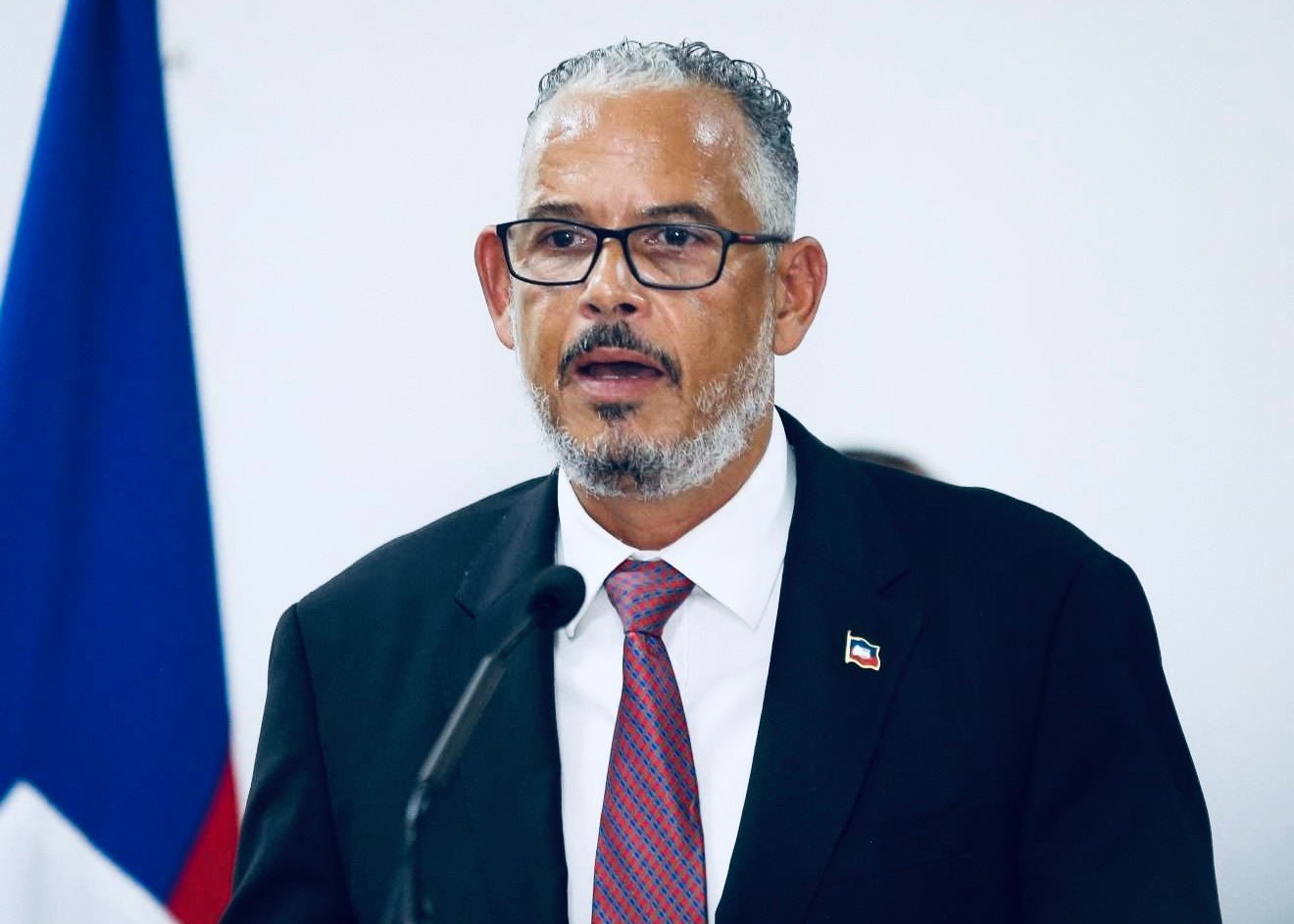PORT-AU-PRINCE — A longstanding issue that has quietly lingered beneath Haiti’s political surface—the question of race and class—has erupted once again amid the leadership transition within the Transitional Presidential Council (CPT). The appointment of Laurent Saint-Cyr, a prominent businessman, as the Council’s new coordinator, has sparked heated debate about the concentration of power in the hands of Haiti’s economic elites.
Critics argue that entrusting both executive branches—the presidency and the prime ministership—to representatives of the private sector is a troubling development. Among them is Fritz Alphonse Jean, outgoing CPT coordinator and respected economist, who acknowledges the legitimacy of these concerns. Jean, himself a published critic of elite domination and the entanglement of private interests with public governance, has previously condemned the influence of the business class in funding armed gangs that continue to destabilize the nation.
Fritz Jean’s Warning and Defense
Jean, a former president of the Chamber of Commerce of the North, did not shy away from addressing the controversy during the transition process. While affirming that not all private sector actors are part of the problem, he stressed that a significant faction has historically benefited from state capture and impunity. He rejected accusations of conspiracy regarding recent evaluations of the prime minister’s performance, insisting that such scrutiny falls squarely within the CPT’s constitutional mandate.
Jean also made it clear that his farewell speech is ready, signaling a commitment to institutional continuity despite the tension surrounding the transition.
A Divisive Debate on Race
Adding to the political turbulence, the conversation has taken on racial undertones. Legal scholar Pierre Antoine Louisstrongly denounced the racial framing introduced by Jean’s critique, warning that such rhetoric distracts from the country’s deeper, structural problems. Louis emphasized that Haiti’s crisis is the product of collective failure across political, intellectual, and economic elites—not just the private sector or individuals of lighter skin.
He noted that political parties have exercised control over the state apparatus since the late 19th century and that invoking racial ancestry as a metric of legitimacy risks promoting discrimination. “All Haitians are equal under the constitution of Emperor Dessalines, who declared all citizens to be Black,” Louis reminded, urging political actors to avoid stigmatizing individuals of light complexion who also belong to the middle class and have the right to engage in public life.
Haitian Tribune Reflection: Race, Power, and the Future of Governance
At The Haitian Tribune, we view this controversy as a painful but necessary confrontation with Haiti’s enduring contradictions. The CPT was envisioned as a pluralistic solution to a national crisis—yet internal divisions now threaten its integrity. The question of who holds power—and what identity they represent—remains deeply charged in a society scarred by colorism, inequality, and elitism.
That said, the core issue here isn’t just race or class—it’s accountability. Whether dark- or light-skinned, wealthy or modest, all members of the CPT must be held to standards of transparency, public service, and ethical governance. The current governance structure, in which Council members operate without formal accountability procedures, raises red flags about concentration of power and lack of oversight.
In a time when Haitians seek stability, safety, and trust in their institutions, political leaders must not allow historic divisions to deepen. The CPT’s effectiveness will depend not on the complexion or pedigree of its members, but on their ability to serve with integrity, inclusivity, and humility—and their willingness to respond to the urgent needs of a people longing for change.
By Haitian Tribune Staff | Adapted from Radio Métropole Haïti reporting
— Haitian Tribune












